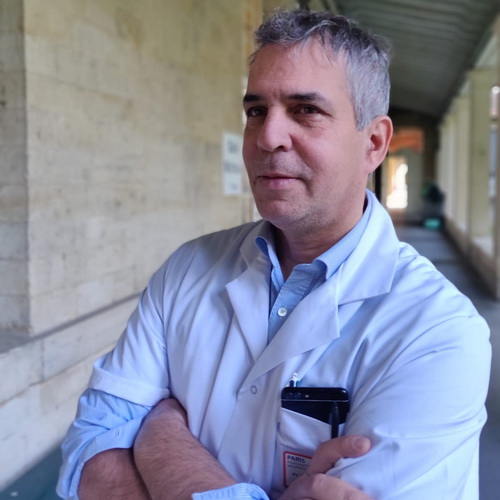Memory loss, depression... The neuropsychological after-effects of Covid-19 (article in L'Express by Valentin Ehkirch of 09/08/2020)
Psychologists and neurologists are working to understand where the psychological and cognitive sequelae encountered by patients with Covid-19 come from.
This is the concern that comes from the after-effects left by Covid-19 on patients affected by the virus. As CoV-2 SARS continues to spread around the world, many countries now fear a second epidemic wave and are trying to avoid further widespread population containment at all costs. Now that the peak of the epidemic has passed, doctors are questioning the lasting effects of this disease on patients, particularly on their mental health.
In mid-May, a study published in The Lancet had pointed out, by comparing the coronavirus responsible for Covid-19 with other coronaviruses, such as SARS and MERS, the occurrence of psychiatric disorders, such as anxiety, depression, or insomnia, but also neuropsychological disorders, i.e. memory or cognitive disorders.
It is still unclear whether the virus (SARS CoV-2) itself is responsible for these disorders, while the containment, hospitalizations, and anxiety-provoking environment of the pandemic may have deleterious effects on mental health. Recently, a study at the San Raffaele Hospital in Milan, conducted on 402 former patients, found that 42% of people showed anxiety disorders, 31% showed signs of depression and 28% showed post-traumatic stress disorder. Many patients also had insomnia, and 20% had developed obsessive-compulsive disorders.
No evidence of viral encephalitis.
For people with a psychiatric history, the Covid-19 epidemic has aggravated some cases, psychologists and psychiatrists are alarmed. "It is difficult to say at this point whether depression, which often resembles post-traumatic stress disorder, is linked to the consequences of confinement, to this atmosphere of great uncertainty, or to neurological impairment," warns Morgan Metral, a lecturer at the Université Savoie-Mont-Blanc who works on cognitive psychology. Many of the patients treated by this psychologist have seen "a worsening of their symptoms," but she remains cautious about what will happen next: "Will we be dealing with people who will remain in this state of stress or is there a risk of observing a sudden change in their state of health? Patient follow-up will make it possible to tell".
 Several studies are currently being conducted in France to measure the impact of this coronavirus on the psychology of patients. In particular, work is focusing on the effect of SARS CoV 2 on the central nervous system, i.e. the very functioning of the brain. In particular, these studies are trying to find out whether the virus is neurotropic, i.e. whether it manages to infect the brain. Within the Groupe Hospitalier Universitaire (GHU) Paris psychiatrie & neurosciences, a follow-up is being carried out on around fifty patients suffering from Covid-19. "We do not have any evidence for the moment of viral encephalitis in humans, i.e. when the virus enters the brain," explains Professor Tarek Sharshar, neurologist in the neuroreanimation department of GHU Paris. However, there are several signs that the brain is particularly affected in the context of generalized inflammation following Covid-19.
Several studies are currently being conducted in France to measure the impact of this coronavirus on the psychology of patients. In particular, work is focusing on the effect of SARS CoV 2 on the central nervous system, i.e. the very functioning of the brain. In particular, these studies are trying to find out whether the virus is neurotropic, i.e. whether it manages to infect the brain. Within the Groupe Hospitalier Universitaire (GHU) Paris psychiatrie & neurosciences, a follow-up is being carried out on around fifty patients suffering from Covid-19. "We do not have any evidence for the moment of viral encephalitis in humans, i.e. when the virus enters the brain," explains Professor Tarek Sharshar, neurologist in the neuroreanimation department of GHU Paris. However, there are several signs that the brain is particularly affected in the context of generalized inflammation following Covid-19.
Inflammation responsible for psychological disorders
"We've had reports of strange neurological symptoms, of people who had problems during their stay in the intensive care unit, of patients being managed for severe cases who were excessively agitated, of some who had significant delays in waking up, or who had somewhat peculiar clinical patterns with large variations in blood pressure, with the control centre located in the brain," says Professor Sharshar.
Even apart from an SARS CoV-2 infection, the consequences of admission to the intensive care unit for a serious infection are known. "Neurocognitive sequelae have been observed for many years in patients admitted to the ICU for severe inflammation," explains this neurologist. There are many reasons for this. They are mainly due to the impact of the inflammation on the brain itself, but also to the use of sedatives, which are essential to keep the patient under intubation and on a respirator.
One thing is certain, this virus causes an abnormally high immune response in some people called a "cytokine storm", referring to a type of immune cell. By affecting particular areas of the brain, such as the frontal cortex, the limbic systems (which govern emotion in particular), the hippocampus (which plays a role in memory) and inflammation, it can cause psychological upheaval.
Confounding factors
In severe cases, or if the inflammation is too strong, these "behavioural centres" can be permanently affected and the after-effects may persist. "The more severe the inflammation, the greater the pathology and the work of the resuscitators, and the more serious the after-effects," emphasizes Tarek Sharshar. If he notes a "particular signature" of the virus in this sense, Professor Sharshar moderates: "it is difficult, with the number of confounding factors linked to this disease, to say what is due to the virus itself, or to the inflammation".
Other leads are being investigated, including cerebral blood flow, which could be affected in the same way as thromboses observed in other parts of the body following an SARS CoV-2 infection, leading to oxygen deficiencies in some parts of the brain. Monitoring patients and their psychological evolution is therefore crucial in trying to understand how these disorders may persist.

